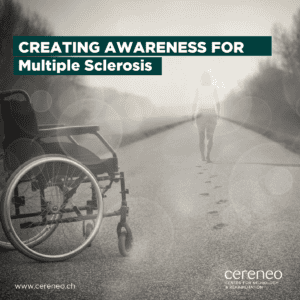This week, from the 10th until the 16th of June 2019, it is International Men’s Health Week: a week where we pay extra attention to aspects of health and risk factors for men. Language, speech and swallowing disorders arise in all types of brain damage. Limitations in communication, the limitation in hearing and the ability to eat decreases quality of life to a great degree.
Up to the age of 40, pure deafness is more commonly found in men than in women. After that age, the rate of deafness among women rises. Key figures on deafness related to birth or prenatal causes reveal slightly more cases among men and key figures on deafness coinciding with additional speech disorders or mental impairment, show slightly higher numbers among men compared to women. The situation is different when it comes to people affected by impaired hearing.
So, are there any differences between men and women when looking at hearing impairments? Is there a difference between men and women when using their voice? Read the article below for answers on some of these questions provided by Karl Heinz-Beck, Speech Therapist at cereneo.
Do men become deaf in an earlier age than women?
When it comes to people affected by impaired hearing, the numbers for men are consistently higher than those for women from an early to an advanced age. However, the difference is particularly pronounced in the age group of 65 to 75, while the number of men who have recently developed this impairment is up to 1/3 higher than that of women. Only among persons aged 75 or older, the figure once again tips towards women who have recently developed a hearing impairment.
Even though the numbers for hearing impairment caused by work, traffic or accidents in the home as well as other types of accidents are significantly higher among men, they pale in comparison with the cases of impaired hearing from birth or as a result of illness and other insufficiently defined causes: 252,000 cases as opposed to some 1,400 cases.
When it comes to impaired hearing, we can thus conclude that men are affected by impaired hearing earlier and more frequently. According to the statistics, attributing this to occupational or accident-related incidents is hardly plausible. Genetic factors (hereditary or predisposition as a result of illness) seem much more dominant (source: key figures provided by the Federal Statistical Office’s Health Department Deutschland).
What is the difference between men and women when using their voice?
When we talk about the pure functional use of one’s voice, there are virtually no differences when it comes to the use of voice. In this context, men and women are bound to the same basic anatomic structures and shared physiological processes.
Air flow through the glottis (whether intentional or emotional/reflectory) causes more or less rhythmic-cyclical vibrations of the vocal cords. Both as multiples of a base frequency and at varying intensity, these vibrations pass through the vocal tract. The vocal tract can be seen as a filter system that amplifies or weakens various frequencies, thus representing the basis for the utterance of human vowels and vowel variations. After all, vowels are the underlying and most significant components of human voice and the one manifestation of voice that is the least affected by articulation.
Prosodic options such as intentional changes to the sound or quality of one’s voice, the pitch and others are not bound to one’s sex. However, every individual has an anatomically defined space in which these variations are possible. The use and freedom to use (or not to use) these options are available to both men and women.
Do you feel that when losing speech capacity, men find loss of speech and hearing harder to accept?
“Acceptance of speech loss” is likely dependent on several factors.
– The severity of the speech impairment
– The premorbid significance of speech for those affected
– Personal context factors
The question of which factors are the most important when it comes to dealing with speech loss can only be answered individually. Speculatively, I would attribute the highest importance to the personal/family-related context factors – especially in cases of severe, complete speech loss. Social and personal safety (in other words a feeling of security) seems to have the same significance for both men and women.
To my knowledge there are no therapeutic approaches – linguistic or pragmatic-communicative ones – that make or recommend to make a difference between treating men or women. Nevertheless, I would suggest to place particularly high importance on the (maximally intensive) treatment of patients in the context of the acute rehabilitation process. This phase is all about fully utilising the potential for concrete healing, restoration and improvement of functionality.










